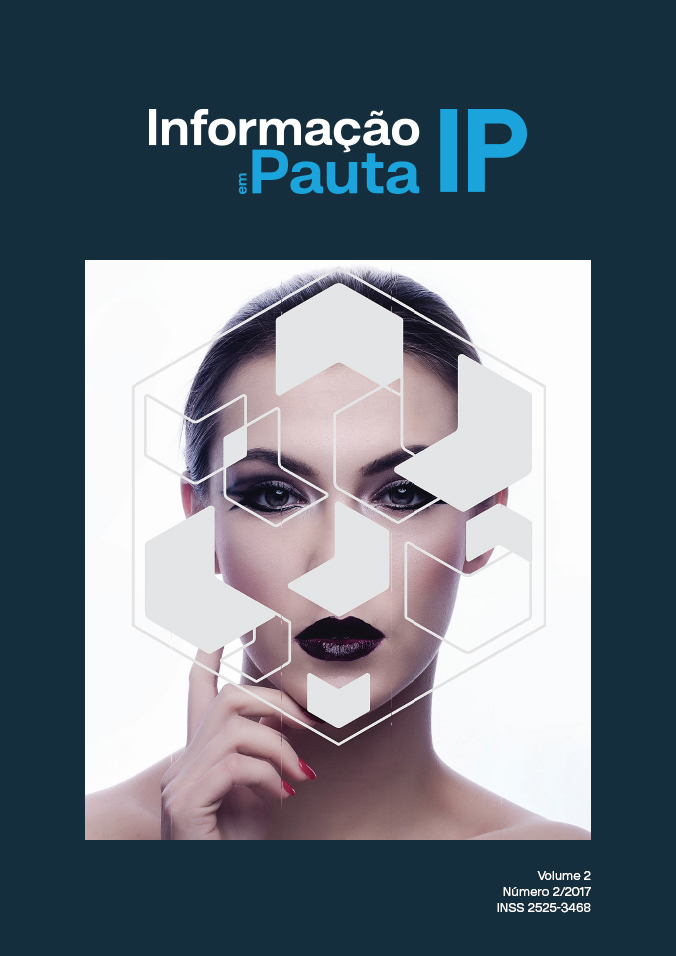ACCESS TO INFORMATION AND DOCUMENTARY PATRIMONY IN THE INSTITUTO FEDERAL DE RORAIMA: achievements and challenges
DOI:
https://doi.org/10.32810/2525-3468.ip.v2i2.2017.20204Keywords:
Access to information, Documentary patrimony, RoraimaAbstract
Over the years the State of Roraima spent several structural and social transformations, reflected in its institutions, and consequently in their documents. Has as focus in this investigation the Federal Institute of Roraima (IFRR). This educational institution is an important pillar in the promotion of informational transparency within the State of Roraima, because that has a direct relationship with the company and its documentary assets keep valuable memories of the history of the Institute and of the State. To this end, the question of the access to information and documentary heritage of the IFRR considering basis to LAI? The objective is to present aspects about the situation of the access to information and documentary heritage of the IFRR in the context of LAI. This research is characterized as qualitative, documentary and field. A semi structured interview as a tool for data collection. The subjects interviewed are two archivists from the Institute, crowded in the rectory, and in Boa Vista Campus Center, respectively. Through results one can realize that even part of the same institution, the Rectory and the Campus have different realities, both with respect to informational access, about the documentary patrimony. However, both perspectives on access and documentary goods are positive.
Downloads
References
BARTALO, L. MORENO, N. A.Gestão em Arquivologia: abordagens múltiplas. Linete Bartalo e Nádia Aparecida Moreno (orgs.). – Londrina: EDUEL, 2008.
BELLOTTO, H. L. Arquivos permanentes: tratamento documental. 4a Ed.Rio de Janeiro: Editora Fundação Getúlio Vargas, 2006.
BRASIL. Constituição (1988). Constituição da República Federativa do Brasil. Disponível em: <http://www.planalto.gov.br/ccivil_03/constituicao/constituicao.htm>.Acesso em: 16 de Abr. 2016.
CRUZ MUNDET. J. R. Archivística: Gestión de documentos y administración de archivos. Alianza Editorial , S. A. Madrid, 2012.
EDMONDSON, R. Memória do mundo: diretrizes para salvaguarda do patrimônio documental. Paris: UNESCO, 2002. Disponível em: <http://www.unesco.org.uy/ci/fileadmin/comunicacion-informacion/mdm.pdf>. Acesso em: 24 de Out. 2016.
GIL, A. C. Como elaborar projetos de pesquisa. 4. ed. São Paulo: Atlas, 2008.
GODOY, A. S. Introdução à pesquisa qualitativa e suas possibilidades. In: Revista de Administração de Empresas. São Paulo: v.35, n.2, abril 1995.
HALL, S. A identidade cultural na pós-modernidade. Trad. T. T. da Silva, G. L. Louro. Rio de Janeiro: DP&A, 2006.
INSTITUTO BRASILEIRO DE GEOGRAFIA E ESTATÍSTICA - IBGE. Disponível em: . Acesso em: 11 de Jan. 2017.
INSTITUTO DO PATRIMÔNIO HISTÓRICO E ARTÍSTICO NACIONAL. Dicionário do Patrimônio Cultural: documentação. Disponível em: <http://portal.iphan.gov.br/dicionarioPatrimonioCultural/detalhes/27/documentacao>. Acesso em: 11 de Out. 2016.
ILHA, R. M. Classificação documental: um estudo dos instrumentos de gestão com vistas à padronização. Monografia de Especialização em Gestão em Arquivos. Universidade Federal de Santa Maria, 2009.
INSTITUTO FEDERAL DE EDUCAÇÃO, CIÊNCIA E TECNOLOGIA DE RORAIMA. IFRR. Disponível em:<http://www.ifrr.edu.br/acessoainformacao/institucional/historico-1> Acesso em: 17 de Abr. 2017.
JARDIM, J. M. A Lei de Acesso à Informação Pública: dimensões político-informacionais. 2012. Disponível em: <http://inseer.ibict.br/ancib/index.php/tpbci/article/view/68/110>. Acesso em: 16 de Abr. 2016.
LAGE, M. O. P. Abordar o patrimônio documental: territórios, práticas e desafios. Guimarães: Éden Gráfico, 2002. (Coleção Cadernos NEPS 4).
MAGALHÃES, D. de. Roraima: Informações históricas. Rio de Janeiro, 1986.
MINETTO, G.V. Lei de Acesso à Informação: a implantação dos requisitos de transparência ativa nas universidades federais com curso de graduação em Arquivologia. Trabalho de Conclusão de Curso. Porto Alegre, UFRGS, 2012.
Published
How to Cite
Issue
Section
License
Autores que publicam nesta revista concordam com os seguintes termos:
a. Autores mantém os direitos autorais e concedem à revista o direito de primeira publicação, com o trabalho simultaneamente licenciado sob a Creative Commons Attribution License que permitindo o compartilhamento do trabalho com reconhecimento da autoria do trabalho e publicação inicial nesta revista.
b. Autores têm autorização para assumir contratos adicionais separadamente, para distribuição não-exclusiva da versão do trabalho publicada nesta revista (ex.: publicar em repositório institucional ou como capítulo de livro), com reconhecimento de autoria e publicação inicial nesta revista.
c. Autores têm permissão e são estimulados a publicar e distribuir seu trabalho online (ex.: em repositórios institucionais ou na sua página pessoal) a qualquer ponto antes ou durante o processo editorial, já que isso pode gerar alterações produtivas, bem como aumentar o impacto e a citação do trabalho publicado.



